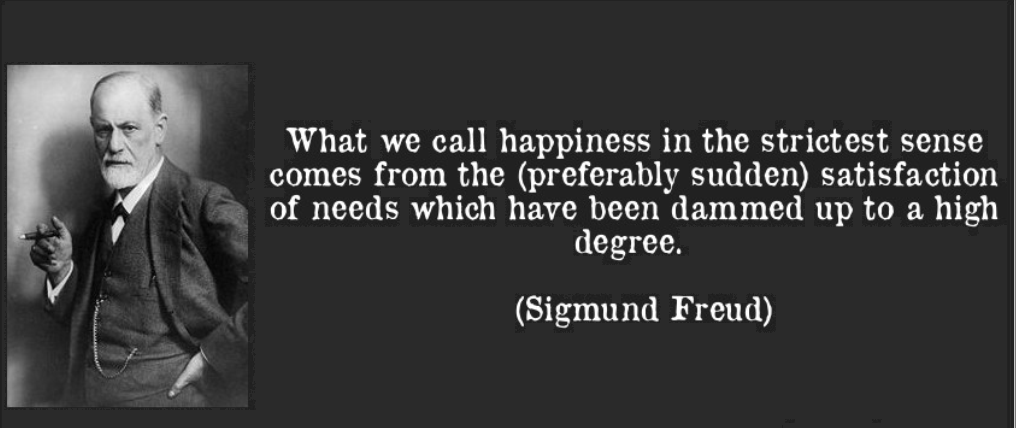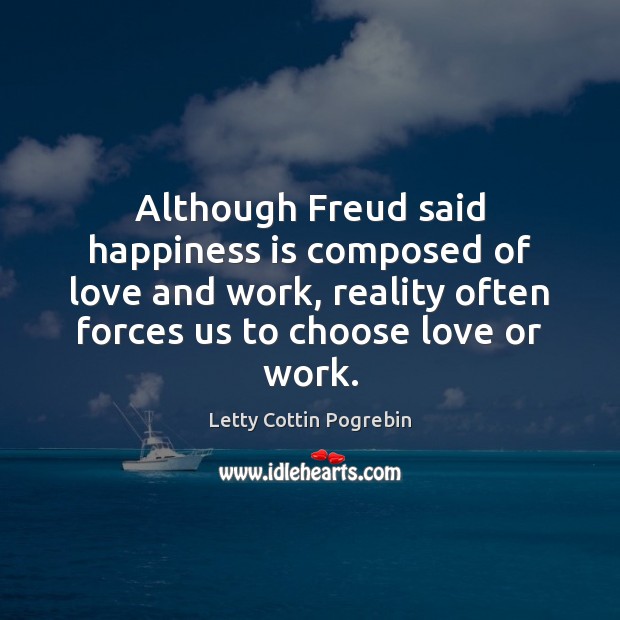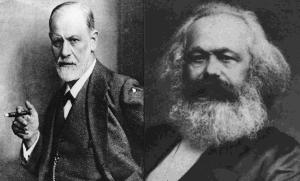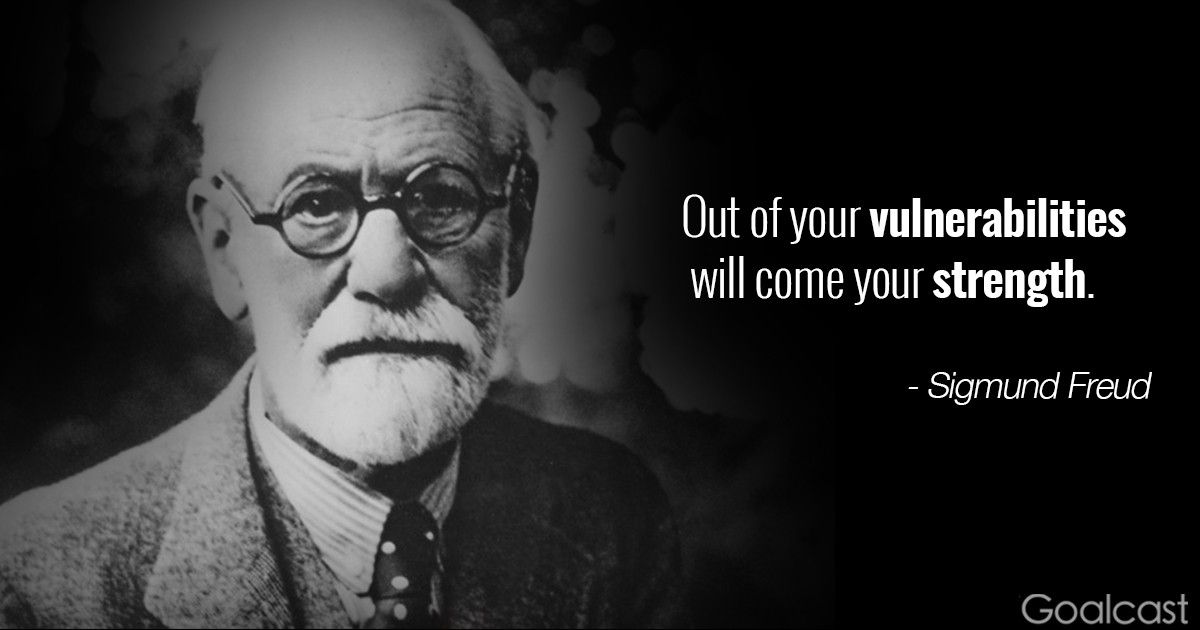Sigmund Freud, the founder of psychoanalysis, believed that happiness was not a constant state, but rather something that people strive for and occasionally achieve. He viewed happiness as being based on the fulfillment of desires and the ability to find pleasure in one's life.
According to Freud, the human psyche is made up of three parts: the id, the ego, and the superego. The id represents our primal, instinctual desires, such as the desire for food, sex, and aggression. The ego is the part of the psyche that mediates between the id and the outside world, helping us to navigate and make decisions based on reality and social norms. The superego is the moral component of the psyche, which strives to suppress the impulses of the id and uphold the values and principles that we have learned from society.
Freud believed that the conflict between these three parts of the psyche was a central factor in determining our overall level of happiness. When the ego is able to balance the demands of the id and the superego, we feel content and satisfied. However, if the id or the superego becomes too dominant, it can lead to conflict and unhappiness. For example, if the id is too strong and the ego is unable to control it, we may engage in impulsive or self-destructive behaviors that bring temporary pleasure but ultimately lead to unhappiness. On the other hand, if the superego is too strong and the ego is unable to assert itself, we may feel guilty or ashamed for not meeting our own or society's expectations, which can also lead to unhappiness.
Freud also believed that happiness is related to the fulfillment of our sexual and aggressive desires. He argued that repression of these desires can lead to neurosis, or mental and emotional distress. In order to achieve happiness, Freud believed that it was necessary to find healthy outlets for these desires and to acknowledge and accept them as a natural part of the human experience.
Overall, Freud's view of happiness was that it was a complex and dynamic process, influenced by the balance of our psyche and the fulfillment of our desires. While he believed that happiness was not a constant state, he also argued that it was something that we can strive for and achieve through self-awareness and self-acceptance.
Happiness, According to Sigmund Freud

It comprises additional detailed mental states such as emotions. Born in 1856 in a small European town, Sigmund Freud would grow to be one of the most important thinkers in recorded history. Freud believe that happiness does not come one source. Despite this, in all cases, Freud insists that the feelings of pleasure are of a much milder quality than the satisfaction of the cruder, baser, instinctual pleasures. In Freud, she would be viewed as merely catering to motivations of the ego not ostensibly self-driven, but I believe such a view undermines human potential. Living in limbo: Life in the midst of uncertainty.
Freud on Happiness

Finally, Freud introduces the concept that some people will turn to love as an answer to the pleasure principle, as a natural conclusion drawn from the experience of sexual love. This may lead to feelings of inadequacy and self-blame, Bernstein explains. He defined this behavior as the pleasure principle. Speaking of means to achieve happiness, Freud starts by taking us through three distinct paths towards happiness: happiness of quietness, happiness of science and happiness produced by drugs. That repression is what oppresses, silences, and regulates our most basic instincts.
Freud and Happiness, Philosophy

Some forms of CBT aims to help the client bring their unconscious thoughts into their conscious awareness, allowing them to explore and understand internal conflicts and learn new, more adaptive ways to relate to themselves and others. This search for pleasure and escape from pain introduces various means and strategies in which the individual might seek to avoid pain and seek pleasure including isolation, inclusion and in the dulling of sensation. New York: Frederick A. Freud mentions a few more ways promising happiness; these were the ones I found most interesting. Although he indicates that love and beauty come closest to fulfilling our needs for happiness, both also make us most vulnerable to pain, concluding that the pleasure principle can never be fulfilled, but neither can the pursuit of it be abandoned. And even to the few who do possess them, this method cannot give complete protection from suffering.
Why Freud was Unhappy and How you Can be Happy

He introduces the Principle of Reality, the negative way of achieving happiness, when man strives to avoid Problems For Happiness In Sigmund Freud : The Dangers Of Happiness Sigmund Freud addresses the problems that living in society poses on an individual. But whoever, in desperate defiance, sets out upon this path to happiness will as a rule attain nothing. Cite this article Capps, D. Ultimately, determining any real aspect of happiness eludes Freud because he cannot believe in it as an authentic state of being. Therefore, we constantly long for immediate gratification to escape the feeling of repression that our society generates. His ideas in response to the puzzles of human existence often conflicted with those of his audience, and I am in this number.
Freud and Happiness

Pleasure of every kind quickly satisfies; and when it is over, we relapse into indifference So there is resonance, when it comes to talking about happiness and pleasure, between ambitious psychoanalytic speculation which references the insight of the poet—always great diagnosers of the human condition—and philosophical attempts to analyze aesthetic sensibility. These are two extremely decisive texts in the field of social psychology and even of the 20th century in general. Freud argued that man would instinctively want to survive and find their own happiness. When God is dismissed, reality begins to collapse in on itself. For example, the positive psychology of Martin Seligman or Mihaly Csikszentmihalyi. It will begin by discussing who he is, his personal history, and then talk about his role in the development of psychoanalysis. There is, indeed, another and better path: that of becoming a member of the human community, and, with the help of a technique guided by science, going over to the attack against nature and subjecting her to the human will.
Sigmund Freud's Concept Of Happiness

Regardless of how much individuals may feel the answer to the problem of civilization is to return to an earlier, more primitive, organization, Freud indicates this reversion would not provide the solution because the basis of civilization remains at the heart of the problem. In my estimation, he fails simply because he essentially refuses to accept a possibility of it not reliant on his own, and largely sexually-based, theories. It should be noted that the famous Austrian psychiatrist always harbored a really pessimistic view of the concept of happiness. More precisely, it is never actually arrived at, because the presentation of impediments to it from Freud render it both virtually inaccessible and, in his estimation, apart from ordinary conceptions of it. A Reconstruction of the Freudian Unconscious This paper is not meant as a wholesale defence of Freud. .
What does Freud say about human happiness in Civilization and Its Discontents?

Thus our possibilities of happiness are already restricted by our constitution. Soon, hunger, desire, and need will return. Against the dreaded external world one can only defend oneself by some kind of turning away from it, if one intends to solve the task by oneself. . On the other hand, there are many aspects of life that are, by their nature, capable of inflicting pain or discomfort, including biological forces upon the human body, the external world in general and the actions of other men in particular. Unhappiness is much less difficult to experience.






:max_bytes(150000):strip_icc()/GettyImages-515296504-81e4865310b14a229157e7d9ab151634.jpg)
